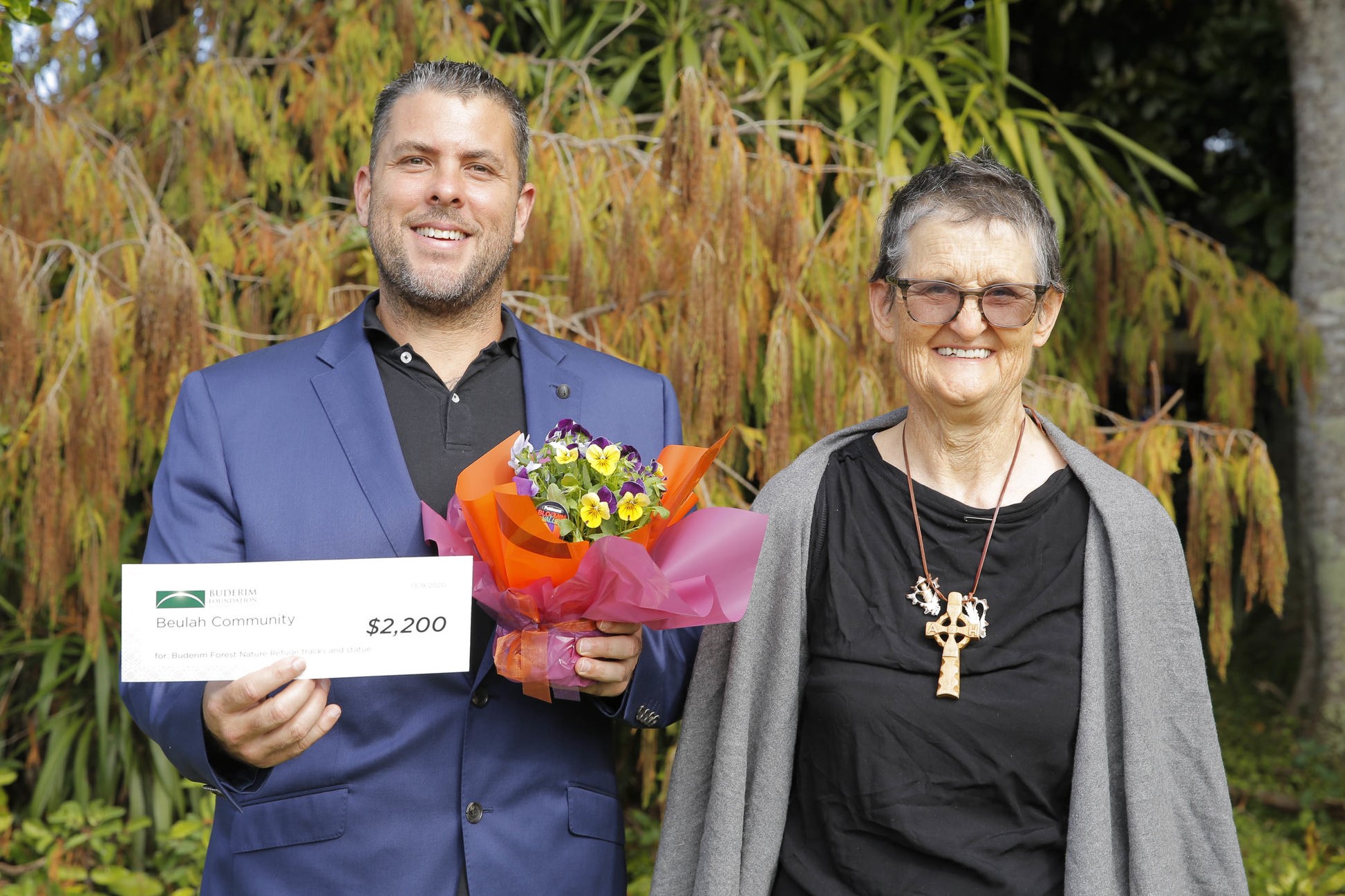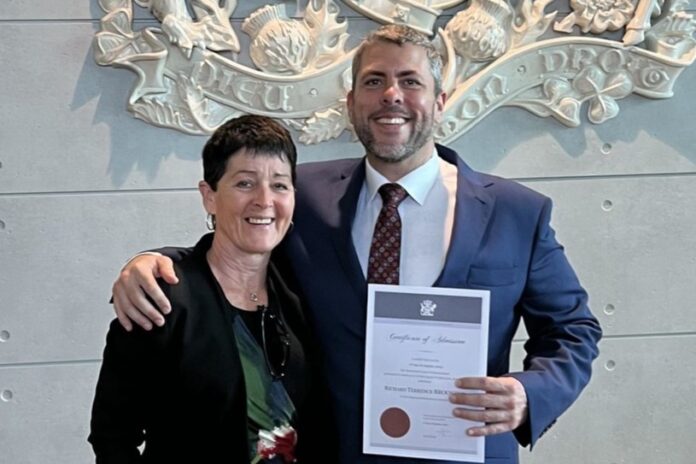A former inmate who rebuilt his life as a lawyer is set to research crime and justice system lived experience programs for at-risk youths overseas, after receiving a coveted Churchill Fellowship.
Sunshine Coast’s Richard Brooking is set to examine intervention methods in the United States, with the potential to inform policy in Australia.
The 41-year-old was delighted to get the award and grant.
“It is a great honour,” he said.
“I would be lying if I said a tear did not come out upon receiving the news.
“It has been quite a journey from spending over a decade involved in drugs, to a further decade gaining multiple degrees, then becoming a lawyer and now a Churchill Fellow.
“You struggle a lot trying to change your life but when things come to fruition it is a great feeling: you feel more removed from the perceptions of being a drug dealer, drug addict and someone who has been to prison.”
Mr Brooking reflected on his journey.
“The situation that impacted my family the most was imprisonment,” he said.
Want more free local news? Follow Sunshine Coast News on Facebook, LinkedIn and Instagram.
“Having to put them through prison visits and letting them down was the hardest bit.
“Everyone knew I had potential but to tell them I had wasted it and to see mum cry in court was a hard pill to swallow.”
He spoke about his involvement with drugs that led to jail time.
“It is hard to really know when that phase started. It could have been when I was really young,” he said.

“I was born in New Zealand in a really rough area. I came here (to Australia) with mum when I was five, but she was really traumatised from her upbringing.
“I am proud to say mum is doing ever so much better now.
“As I got older I started hanging around people and having role models who were involved in drugs.”
He was convicted of charges relating to producing drugs and sent to jail.
“I received a little bit more than the minimum sentence because the equipment was sophisticated, translating to a two-year head sentence and parole after six months.
“Had pseudoephedrine been there, it could have been a six or an eight-year head sentence.
“This would have made my work now much more difficult.”
His transformation started when he went to jail.
“It was really hard turning my life around,” he said.
“I can see why others stay in the revolving door, especially if it is all you know and no other opportunities seem to be available.
“Education helped me a lot … (it) opens your mind to new ideas and gives you internal confidence.
“I needed to build my confidence so I could engage with other areas of society like academia, law and social justice.”
He said he was inspired to pursue social justice and improve outcomes for young people and their families.
“(That came through) reconnecting with my adopted family and being around community groups and social justice circles,” he said.
“My nan is a social justice warrior who taught me a lot about our First Nations history, Christian values, social justice and helping others.”

He spent a decade rehabilitating and educating himself. He obtained a Bachelor of Laws/Business and a Master of Business majoring in Philanthropy and Nonprofits, and is now an admitted lawyer in the public sector who helps people with impaired decision-making.
He is a director of a social justice and land conservation charity, working with First Nations young people and families and he has experience in youth justice policy, youth lawyering, and philanthropy.
“I have mentored some budding lawyers with criminal convictions and spoken to youths about finding good mentors,” he said.
“But my goal is around systemic improvement.
“I have made submissions to various reform committees. I made a submission to the Anti-Discrimination Bill 2024 outlining my lived experience of obtaining employment with a criminal record and providing a drafted section of legislation to combat the problems I faced.
“My main focus is this fellowship now. The goal of this is to develop the crime and justice system lived experience community for the benefit of youth in Australia, something that is well underway in the USA.”
He hopes to go overseas next year, pending visa approvals with a criminal record.
“In the USA, they use people with crime and justice system lived experience for youth intervention,” he said.
“This type of intervention sat in the grassroots for years, mainly done by volunteers who were lifers. However, it is now becoming more mainstream with big government and philanthropic funding initiatives, education institutions providing training, and community groups delivering and setting up these types of programs.
“This intervention has shown good success with gang violence and high-risk youth.
“In some counties, youth violence is seen as a health issue, and their health department funds these lived experience youth workers to intervene. Other counties use these lived experience workers in their probation department or education department and so on.
“It appears that the youth trust these mentors more through shared lived experiences, and it assists in engaging disengaged youth with services and the professional model.
“I hope to discover and learn everything I can about this lived experience ecosystem and how it can help Australia’s developing crime and justice system lived experience community with the intervention of our high-risk and gang-affiliated youth.”





